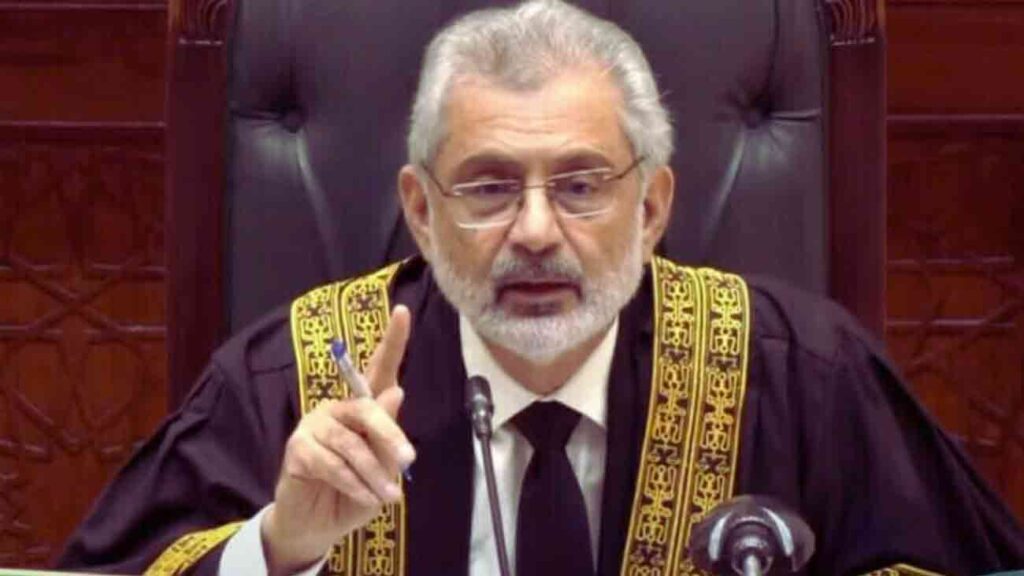Reserved Seats
ISLAMABAD: In a comprehensive minority judgment delivered on Tuesday, Chief Justice of Pakistan Qazi Faez Isa articulated that the enforcement of the Supreme Court’s verdict from July 12 regarding reserved seats is not binding due to the pending review petitions related to the case, which have not yet been scheduled for a hearing.
This detailed dissent emerged shortly after the Supreme Court’s eight judges reiterated their stance that amendments made by parliament to the Elections Act do not possess retroactive effects and thus cannot invalidate the court’s prior judgment on reserved seats. This clarification reportedly upset the Chief Justice.
Justice Isa’s dissenting opinion pointed to numerous constitutional violations and irregularities within the majority’s concise ruling from July 12, 2024, as well as in the more elaborate judgment issued on September 23, 2024, and subsequent orders issued on September 14 and October 18, 2024.
He expressed hope that the majority would reconsider their decisions and amend any mistakes to ensure governance in Pakistan aligns with constitutional principles.
In his detailed dissent, Justice Isa lamented the inability to address the review petitions against the majority’s short order, as he and fellow Justice Syed Mansoor Ali Shah were outvoted by Justice Munib Akhtar on the committee established under the Supreme Court Practice and Procedure Act of 2023.
He emphasized that the majority’s actions reflected a departure from the established judicial framework, highlighting that they formed a separate “virtual court” that permitted the Election Commission of Pakistan (ECP) and the Pakistan Tehreek-e-Insaf (PTI) to submit an “appropriate application” for consideration, a process that was to be conducted privately in Chambers.
The Chief Justice pointed out that this procedure was not only unorthodox but also legally unfounded, as neither the Constitution nor any prevailing laws authorize such an approach.
Notably, during the proceedings, no party or counsel proposed the course of action ultimately adopted by the majority.
Furthermore, neither the majority’s short order nor their detailed judgment provided a rationale to support their chosen path.
Justice Isa concluded that in effecting legislation through their actions, the majority judges contradicted their own previous stances, complicating an already intricate legal landscape.
His dissent serves as a reminder of the need for accountability and adherence to constitutional mandates within Pakistan’s judicial system, urging a return to principles that ensure fair governance and judicial integrity.










